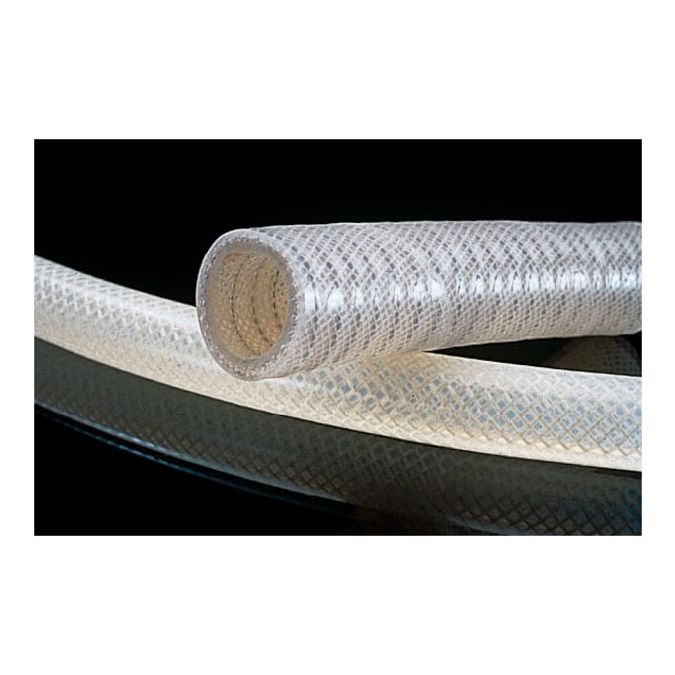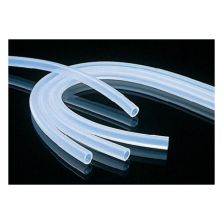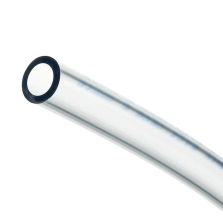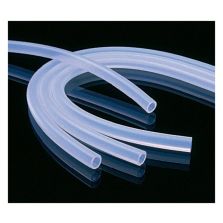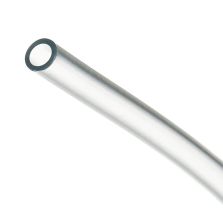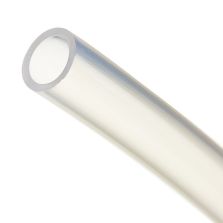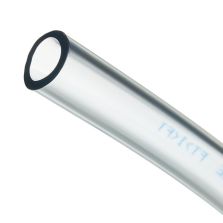Thermo Scientific Nalgene 65 Braided Platinum-Cured Silicone Tubing - 1/2 in. ID, 13/16 in. OD - Case of 25 - 8061-3190
| Autoclavable | Autoclavable |
|---|---|
| Certifications/Compliance | Meets FDA, USDA, U.S. Pharmacopeia Class VI, 24th Edition requirements for plastic materials; and 3A sanitary standards |
| Color | Translucent |
| Diameter English Inner | 1/2 in. |
| Diameter English Outer | 13/16 in. |
| Diameter Metric Inner | 12.7 mm |
| Diameter Metric Outer | 20.64 mm |
| Flexibility | 4 x OD bend radius |
| Hardness | 65 (Shore A) |
| Material | Platinum-cured Silicone |
| Max Operating Temperature English | 450°F |
| Max Operating Temperature Metric | 232°C |
| Maximum Pressure | 63 psig at 320°F (160°C) |
| Overall Length English | 25 ft. |
| Overall Length Metric | 7.6 m |
| Packaging Quantity | 1 tube, 25-ft. long |
| Product Type | Flexible Braided Tubing |
| Thickness English | 3/64 in. |
| Thickness Metric | 3.97 mm |
| Unit Size | Case of 25 |
Use Thermo Scientific Nalgene 65 Braided Platinum-Cured Silicone Tubing for a variety of pump and transfer applications, including pharmaceutical, laboratory, bioprocess manufacturing and food and beverage applications. This durable, high-purity tubing features an interwoven polyester braid for added safety, pressure and kink resistance.
Features a low binding suface to minimize absorption of proteins and food products.- Contains no phthalate plasticizers or peroxides to leach out into transported fluid
- Tasteless, odorless, noncytotoxic, nonpyrogenic and nonhemolytic
- Autoclavable; also can be sterilized by gamma radiation, ETO and chemical procedures
- Durometer hardness: Shore A, 65
Warranty: 90 days
Ordering Information:
Double-bagged in 25′ (7.6m) cases; 23°C
Sterilization Guidelines:
If practical, Ethelene oxide or chemical sterilization is recommended. Even when autoclaved properly, large-diameter tubing (i.e. greater than ½ inch (12mm) may kink or distorted. If possible, select heavy-wall tubing.
Autoclaving: (121°C/12 psig (1 bar) for 15 minutes): Clean and rinse tubing with distilled water before autoclaving. Certain chemicals which have no appreciable effect on resins at room temperature may case deterioration at autoclaving temperatures unless removed with distilled water beforehand.
Gas: Ethylene oxide formaldehyde
Disinfectants: Benzalkonium chloride, formalin, ethanol, etc.
Dry Heat: 170 °C (338 °F)
Radiation: Gamma Irritation at 2.5 Mrad.
